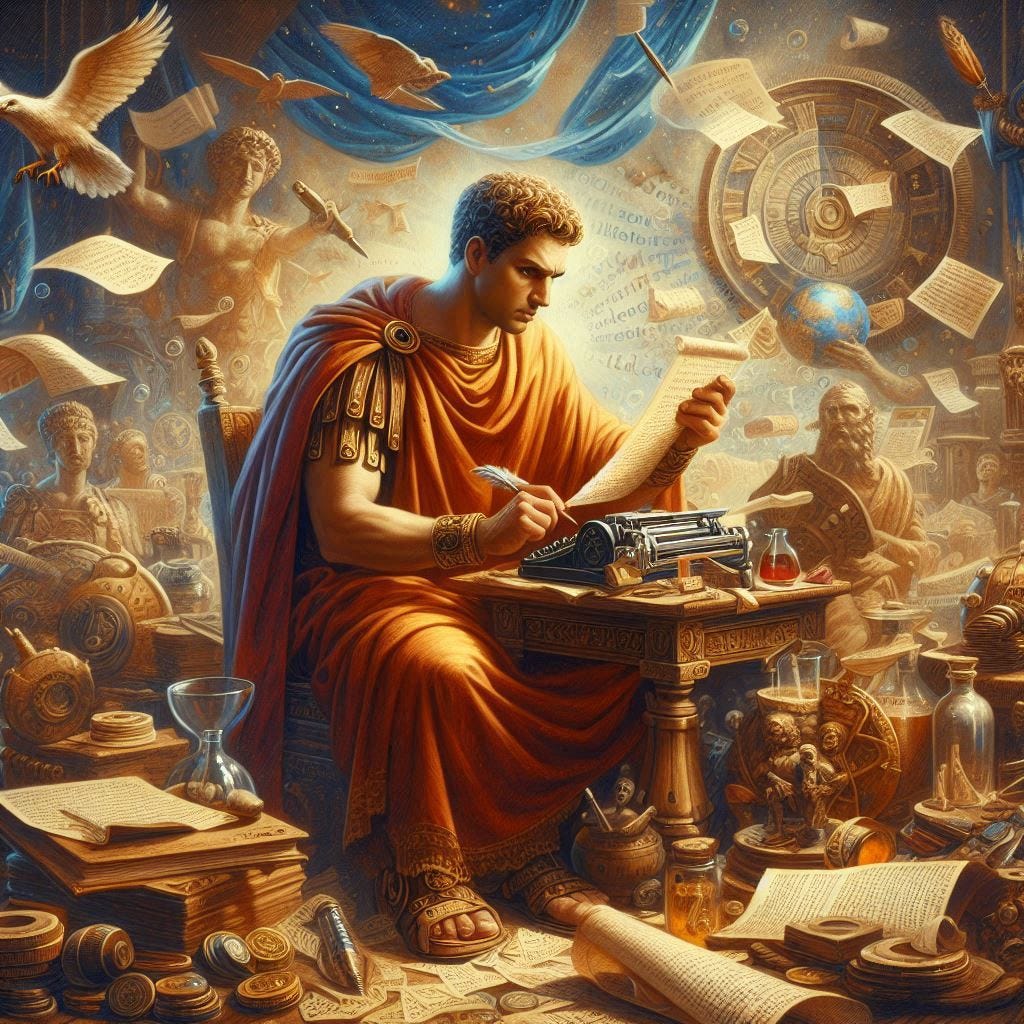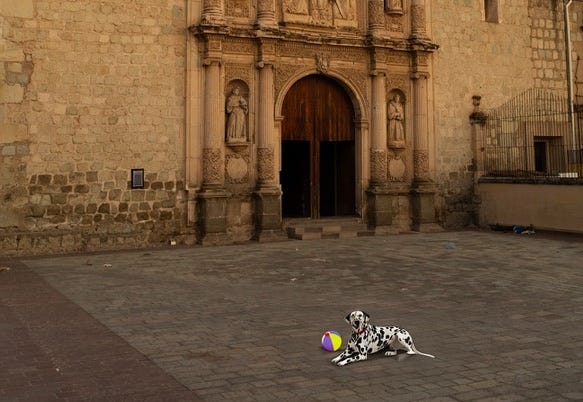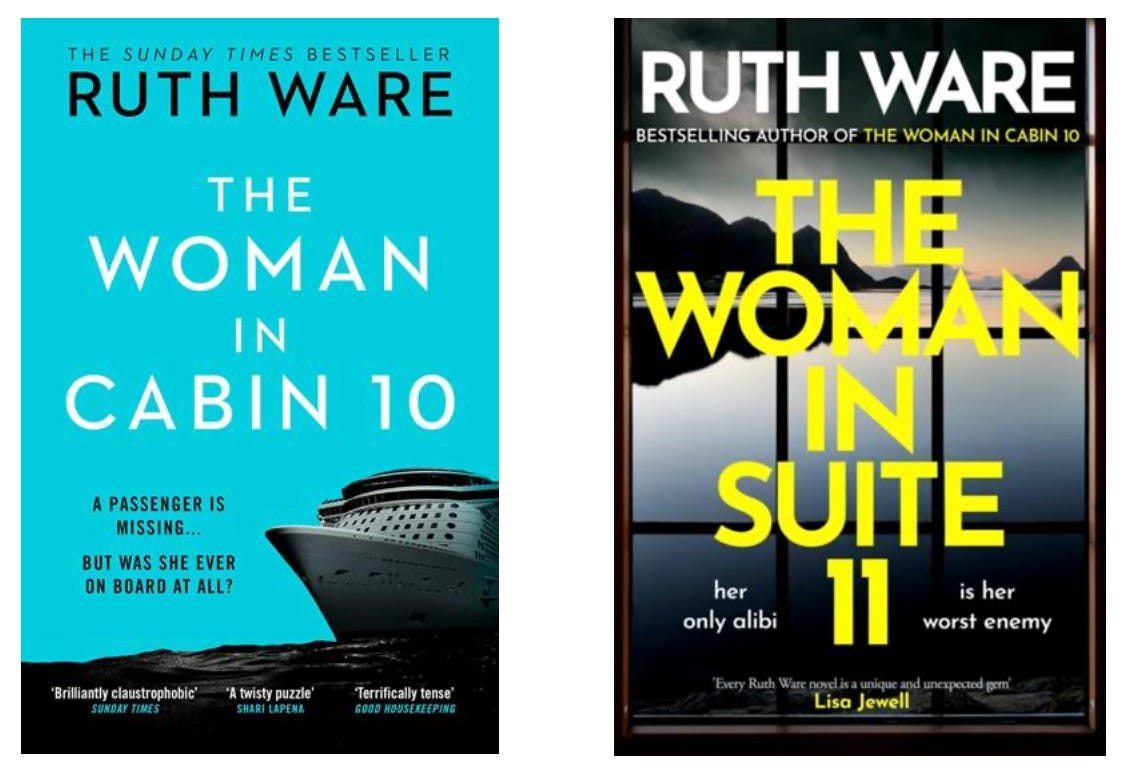It may seem obvious to you that Ai was not used in the writing of this post. After all, we’ve only just invented the wheel on the island where I live and write, so please don’t expect me to have a robot do this for me.
You might think Ai could do better than I can, but please keep that opinion to yourself!
Interestingly, the Substack team has just informed me that 43% of the fiction writers using this platform are using Ai. Technology, Business, and Finance had the highest rates of adoption, while Literature, Music, and Art had some of the lowest.
Thankfully, Substack writers are using it primarily for research, writing assistance and ideas rather than for content generation. Yes, I’ve used it for images, like this tongue-in-cheek mock-up below of Roman scribe Aulus Hirtius tapping away on an ancient typewriter as a contributor to Caesar’s war annals in 55BC (one of the key characters in my next series). I really don’t know if there’s art theft involved in that image, but I’m sure my readers will tell me.
In my last missive, I bemoaned that fact that my novels have been stolen to train Meta’s Ai machine app. This was shocking enough to inspire a number of supportive comments.
One of them came from a former client of mine, from the days when I was at the helm of a PR company. A good friend, too, as the best clients are.
Peter Samwell was a senior director at Fujifilm, both in Germany and the UK, with whom I worked closely to assist the imaging giant throughout the Nineties. That period, of course, included the emergence of digital technology to transform the photographic industry.
We’ve kept in touch, not least through his regular posts on ‘trackmytour’ from the far-flung corners of the globe. If anyone understands fast-moving imaging technology, it is he.
Here’s what he said:
Ai is rather an unknown quantity to a 75-year-old like me. I’ve never had cause to use Chat GPT so I have no idea what it might do for me.
I can understand that for a wordsmith like yourself, Ai presents big challenges, although my lack of understanding about Ai means I don’t understand how it steals content in order to train Ai. However, while I’m no wordsmith, my many years of taking photographs may make me an “imagesmith” (there, I think I’ve invented a new word!). And for photographers, Ai has some wonderful benefits as well as being a potential disaster zone.
The benefits for me are this – my extensive travels around the world (91 countries so far) have enabled me to take photos of some amazing places (150,000 digital photos plus countless negatives and slides). But all too often my shot has been spoiled by hordes of tourists (yeah, I know I’m one also!). My dear wife has spent a lot of time standing around while I wait for the crowds to dissipate so that I can capture my desired photo with no, or few, people in it.
Once digital photography came along and I started to use Adobe Photoshop and Lightroom, I could (and did) spend hours cloning people out of my photos. But now with Ai I can click once and Remove People, and they are gone. In seconds! And then with another click, I can remove anything else that is a distraction.
I attach an example taken in Oaxaca in Mexico of “before”, and “after”. Magical and I now don’t care if there are people in the scene as I know that I can simply “remove” them afterwards. Apple has introduced this feature on their latest iPhones - it’s called Clean Up.
So what, you may ask, is the “potential disaster zone” I mentioned earlier? Well, as well as removing features from an image, one can also add features – called Generative Fill. So now one can say, “generate a small Dalmatian dog with a coloured beachball” and lo and behold, the image is transformed.
Call me old-fashioned (and many people do!) but this is not photography. Yes, I know that the definition of the word photography is “drawing with light”, so Ai meets that broad description, but this IMHO, could possibly be described as art but definitely not photography. In the real world, photo competitions now ask entrants to declare whether their images are taken with a camera or smartphone or whether they have been generated by Ai.
Such is progress, I guess? But is it really?
My thanks to Peter for his informative contribution.
Well done, Dr Ai
While researching for the UK natural health magazine I edit, I stumbled across Times columnist Juliet Samuel’s piece entitled, “When the doctors gave up, ChatGPT found a cure” (The Times, July 21st 2025). It seems the doctors were baffled by her friend’s escalating histamine intolerance, histamines being chemicals produced by our immune systems or by bacteria present in numerous foods. More so than hay fever, which can be debilitating in itself, of course.
The doctors had nothing to offer, despite worsening symptoms. Eventually, Juliet’s friend’s partner did some troubleshooting and within a few minutes had some suggestions: pea sprout powder and nettle tea. In for a penny, etc. The remedies worked.
So if Ai is willing to listen to my advice, stick to what you’re good at and leave creativity to humans. We have emotions; you don’t.
Ruth Ware to visit Alderney
Ruth Ware, the international bestselling author of the Sunday Times and New York Times hit, The Woman in Cabin 10, will be in Alderney (where I live and write) in November for a packed day of events: a book club, a talk, and in the evening, a locked-room mystery at the Blonde Hedgehog hotel for diners to solve.
The Woman in Cabin 10 will be getting the feature film treatment on Netflix this autumn, starring Keira Knightly as a travel writer covering the maiden voyage of a luxury cruise who witnesses a passenger being thrown overboard... except no one is missing.
Just published this month is the book's sequel The Woman in Suite 11, which will also be getting the Netflix treatment next year.
Stay tuned for more details nearer the time, and a report afterwards.






Good article, although I'm very sceptical about the nettle tea thing - people get better for many reasons without the weird remedies actually doing anything: regression to the mean, placebo effect etc!
I worked for the man who invented rudimentary proto-AI in the medical field back in the last century. We've fallen out of touch so I don't know what he thinks now. But he was adamant that AI which could fully replicate a human mind was "ten years away -- and it always will be." I hope he's right.